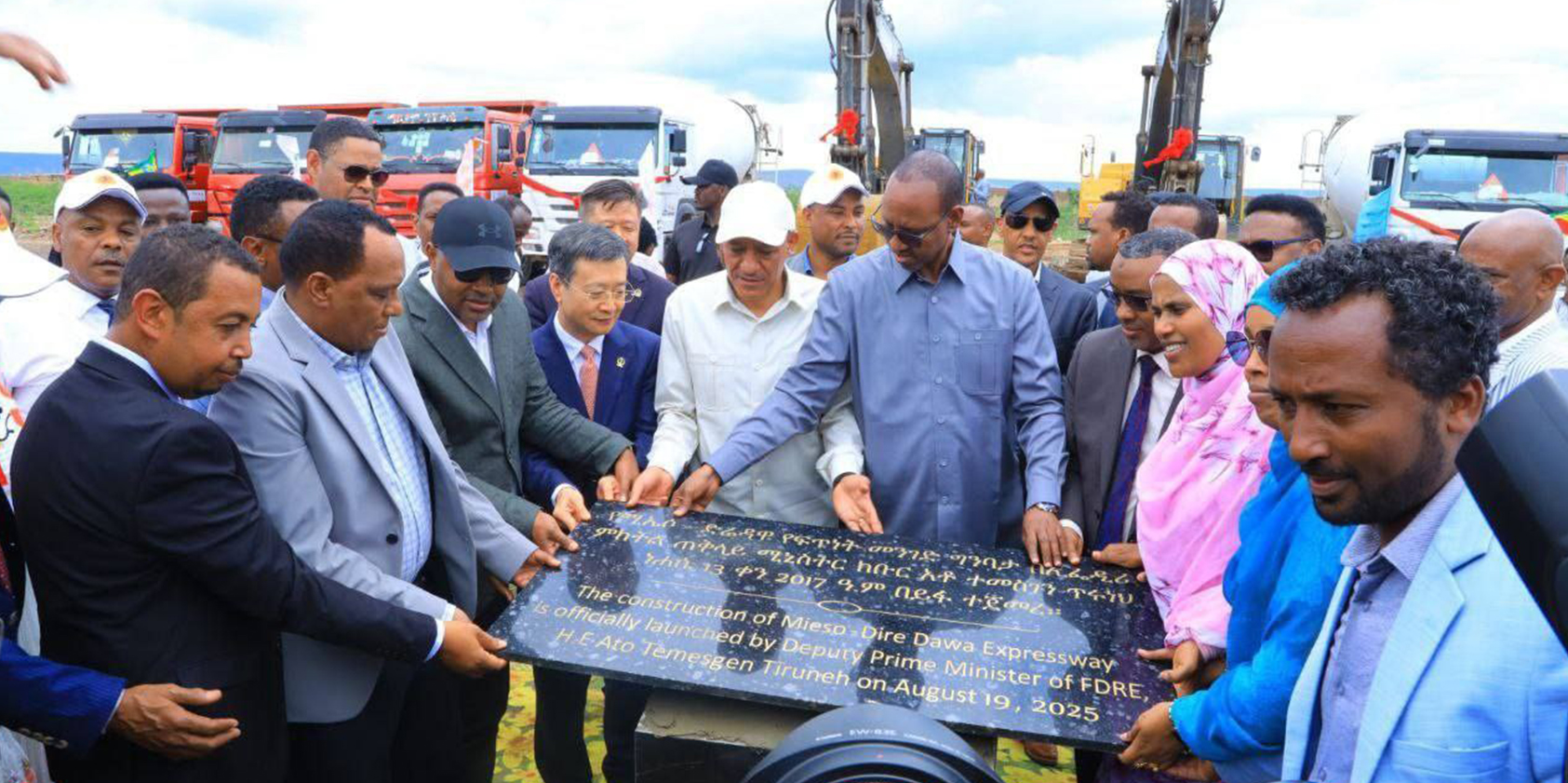The strategic significance of Djibouti’s ports for landlocked central Ethiopia is set to be strengthened by a major new road project that has just begun.
In 2023, the World Bank approved full financing for the highly anticipated 144 km expressway connecting Mieso to Dire Dawa in eastern Ethiopia.
This project is a game-changer for the Ethio-Djibouti Transport Corridor, a key logistics route, and has been in the works for some time.
Construction will be undertaken by two Chinese companies: the China Civil Engineering Construction Corporation (CCECC), known for its major infrastructure projects in Ethiopia, and the Sichuan Road and Bridge Group, according to the Ethiopian Roads Administration.
The project will be divided into two sections: a 73 km stretch from Mieso (294 km east of Addis Ababa) to Beki, and a 71 km section from Beki to Dire Dawa, which will connect to the existing Dire Dawa-Dewale expressway leading to the Djibouti border.
Financed by a 62.4 billion birr fund from the World Bank’s International Development Association (IDA), the project is expected to be completed within 48 months.
Currently, the 144 km road between Mieso and Dire Dawa is a gravel track adjacent to the Addis Ababa-Djibouti railway line.
Its poor condition fails to accommodate the heavy truck traffic that is essential for accessing Ethiopia’s primary port in Djibouti.
As a result, many drivers are forced to take a 200 km detour via Dengego, a route through the Hararge highlands that is also unsuitable for heavy trucks.
The new Mieso-Dire Dawa expressway will significantly reduce the distance to Djibouti, with logistics experts estimating it will cut at least 146 kilometers from the journey compared to the longer Galafi-Mille alternative.
Upgrading this route to a four-lane expressway will decrease transport time, improve road safety, lower fuel and vehicle maintenance costs, and reduce pollution.
This upgrade is crucial for supporting Ethiopia’s economic growth and social development by enhancing the efficiency and capacity of this vital trade artery.
Experts emphasize that the new road will strengthen the connection between Mieso and Dire Dawa, the largest city in eastern Ethiopia and a key logistics and industrial hub, cutting the distance to the port from Addis Ababa by over 100 km.
“The project, which aligns with the railway network, will solidify Djibouti as Ethiopia’s nearest sea outlet,” they stated.
While some experts point out that the port of Assab in Eritrea is roughly 20 km closer to central Ethiopia than the route to Djibouti via Galafi, the railway linking Addis Ababa to Djibouti measures only 750 km.
An expert in cargo movement stated, “The new road from Mieso to Dire Dawa aligns with the railway line, and its upgrade will significantly shorten the effective road distance. This makes the Djibouti route the most viable option for Ethiopian truck drivers and enhances the strategic importance of Djibouti’s ports for Ethiopia.”
Ethiopia currently connects to Djibouti through three main routes: Belho, Galafi, and Dewale. Users of the Galafi route frequently express concerns about the poor condition of the road network within Djibouti, which the Djiboutian administration attributes to climate change and has pledged to improve. Over 95% of Ethiopia’s import-export trade by volume depends on the Addis-Djibouti corridor.
The World Bank reports that the project will also create opportunities for private sector involvement in operating freight truck terminals. The Addis-Djibouti Regional Economic Corridor project is a priority for international partners in the Horn of Africa, aiming to connect hinterlands to ports and markets to boost regional trade.
Another segment of the Ethiopia-Djibouti Transport Corridor Project, which includes the 125 km Adama-Awash and 72 km Awash-Mieso roads, is expected to be implemented under a different approach.



